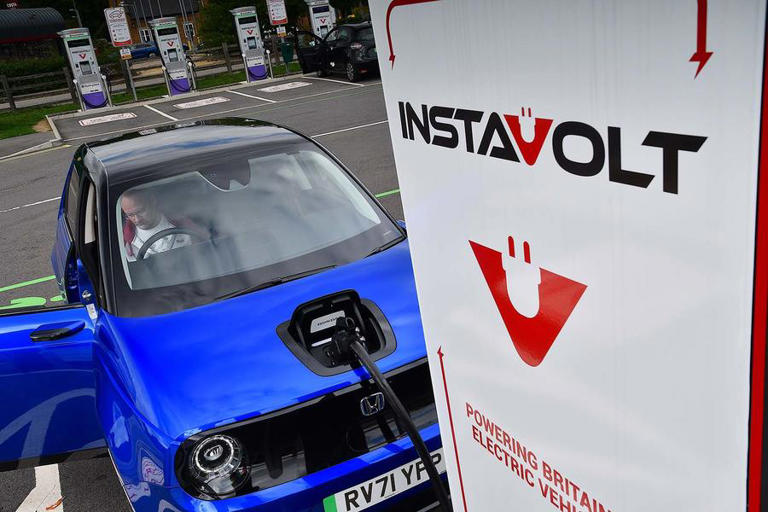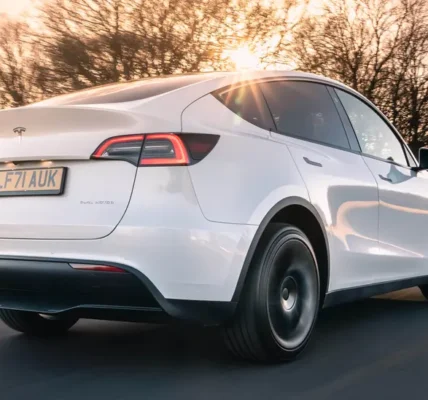- Homepage
- Automobiles
- Electric Vehicle Safety: 5 Crucial Tips for Unstoppable Protection
Electric Vehicle Safety: 5 Crucial Tips for Unstoppable Protection
Table of Contents
ToggleElectric Vehicle Safety: Navigating Challenges and Ensuring Reliability
Electric Vehicle Safety: Discover essential insights into the safety challenges and solutions surrounding electric vehicles. Explore effective strategies to ensure a secure and reliable transition to electric mobility.

Electric Vehicle Safety: Exploring Concerns and Solutions
Electric vehicles (EVs) represent a significant step forward in our quest for sustainable transportation. With their promise of reduced emissions and lower maintenance costs, EVs have captured the imagination of consumers worldwide. However, as the popularity of electric cars continues to rise, so too do concerns about their safety and reliability.
The Rise of Electric Cars: A Double-Edged Sword
In recent years, the adoption of electric vehicles has soared, driven by advancements in battery technology and government incentives aimed at promoting clean energy. In the UK alone, EV sales surged by over a third, reflecting a growing interest in eco-friendly transportation options. Despite this enthusiasm, a recent survey revealed that 85% of motorists remain hesitant to make the switch to electric vehicles, citing concerns about safety and reliability.
Unpacking Safety Concerns: Myths vs. Reality
Reports of safety incidents involving electric cars have fueled apprehensions among consumers and experts alike. From incidents of “disabled brakes” to “out-of-control speeding,” EVs have faced scrutiny over their smart technology systems and potential vulnerabilities. However, it’s essential to separate fact from fiction when evaluating the safety of electric vehicles.
Myth: Lithium-ion Batteries Pose Higher Fire Risks
Contrary to popular belief, rechargeable lithium-ion batteries used in EVs are not inherently more prone to spontaneous fires than traditional petrol or diesel cars. Studies indicate that internal combustion engines are actually ten times more likely to catch fire compared to electric vehicles. While battery-related issues such as overheating can occur, proper maintenance and monitoring can mitigate these risks effectively.
 Reality: Smart Technology and Potential Failures
Reality: Smart Technology and Potential Failures
One of the primary concerns surrounding electric vehicles is the reliance on smart technology systems for essential functions such as speed limiters, cruise control, and lane assist. The integration of these advanced features introduces complexities that can increase the likelihood of system failures. Whether it’s a malfunctioning speed limiter or unresponsive brakes, the consequences of smart technology failures can be alarming for drivers.
Navigating Safety Challenges: Strategies and Solutions
While concerns about electric vehicle safety are valid, proactive measures can help mitigate risks and ensure a smoother transition to electric mobility. From routine maintenance to enhanced cybersecurity protocols, here are some strategies for addressing safety challenges associated with EVs:
Prioritize Routine Maintenance and Diagnostics
Regular maintenance is crucial for identifying and addressing potential issues before they escalate into safety hazards. Mechanisms such as sensor failures or battery malfunctions can be detected early through comprehensive diagnostics conducted by trained professionals. By staying vigilant and proactive, EV owners can minimize the likelihood of safety-related incidents on the road.
Enhance Cybersecurity Measures
As electric vehicles become increasingly connected to the internet, cybersecurity emerges as a critical consideration for manufacturers and consumers alike. The potential for remote control and hacking underscores the importance of implementing robust security protocols to safeguard against unauthorized access and malicious manipulation of vehicle systems. By investing in cybersecurity measures, EV manufacturers can instill confidence in consumers regarding the safety and integrity of their products.

Foster Education and Awareness
Educating consumers about the benefits and risks of electric vehicles is essential for fostering trust and confidence in the technology. By providing clear and accessible information about EV safety features, maintenance requirements, and cybersecurity best practices, manufacturers can empower drivers to make informed decisions about their transportation choices. Additionally, initiatives aimed at training mechanics and service professionals in EV maintenance and repair can enhance safety standards across the industry.
Embracing the Future of Electric Mobility
Despite the safety concerns surrounding electric vehicles, the transition to electric mobility is inevitable in our pursuit of a cleaner and more sustainable future. With governments worldwide setting ambitious targets for phasing out petrol and diesel cars, the need for safe and reliable electric transportation has never been greater. By addressing safety challenges head-on and prioritizing innovation and regulation, the electric vehicle industry can pave the way for a greener and more efficient transportation ecosystem.
In conclusion, electric vehicle safety is a multifaceted issue that requires collaborative efforts from manufacturers, policymakers, and consumers. By acknowledging the potential risks and implementing proactive strategies for mitigation, we can ensure that electric vehicles remain a viable and safe mode of transportation for years to come. As we navigate the complexities of electric mobility, let’s embrace the opportunities for innovation and sustainability that EVs bring to our world.




